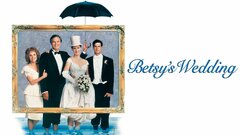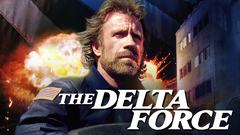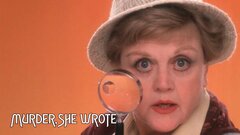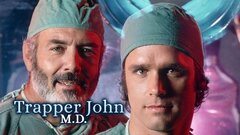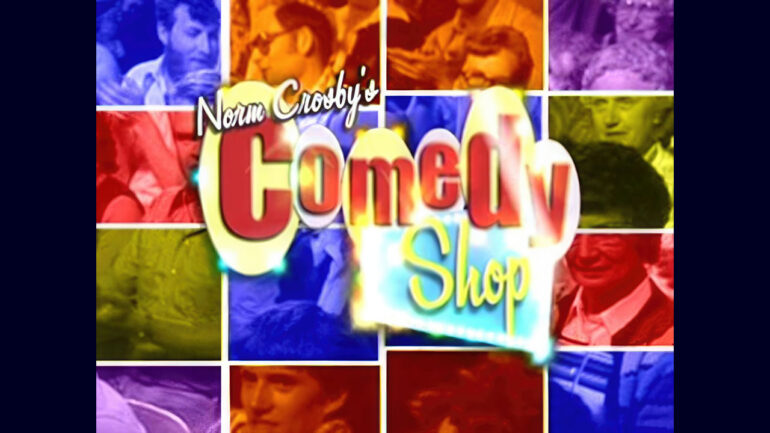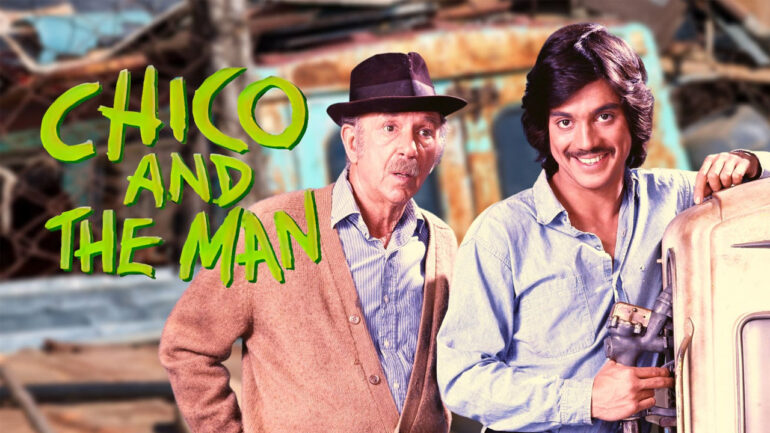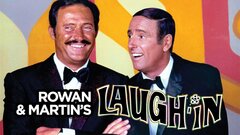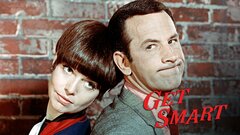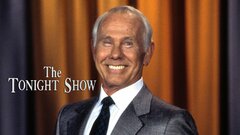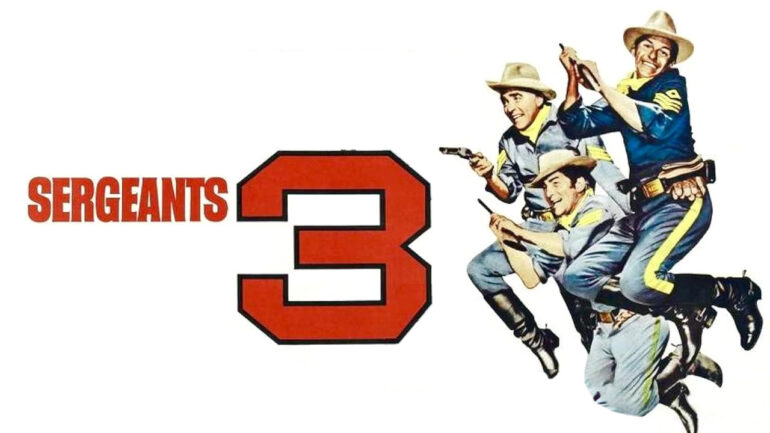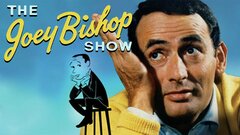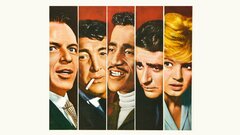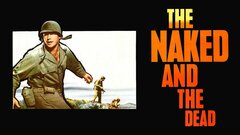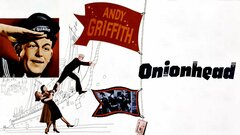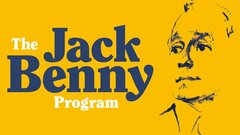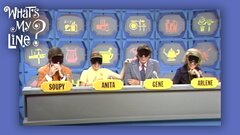The cynical, quick-witted funnyman of the iconic Rat Pack, actor-comedian Joey Bishop was held in far higher esteem by pack leader Frank Sinatra than may have been apparent to the casual spectator. Educated in the hard-knock school of the vaudeville circuit, Bishop had gained a solid reputation as a nightclub comedian by the early 1950s, whereupon he caught the eye of Sinatra, who hired him as an opening act. He soon broke into acting with small roles in such films as "The Naked and the Dead" (1958), but it was the Rat Pack-defining crime caper "Ocean's Eleven" (1960) that forever enshrined him and his pals Sinatra, Dean Martin, Peter Lawford and Sammy Davis, Jr. as icons of Sixties cool.
As a solo act on television, Bishop enjoyed a successful run as a sitcom star on "The Joey Bishop Show" (NBC, 1961-64/CBS, 1964-65), followed by a brief run as a late night talk show host with "The Joey Bishop Show" (ABC, 1967-69). Following a decade comprised largely of nightclub performances and appearances on television game shows, Bishop made his Broadway debut with a short stint in the long-running musical "Sugar Babies" in 1981. With his career winding down, the comic made the occasional return to the screen in features like the action-adventure "The Delta Force" (1986). Although often overshadowed by his larger-than-life Rat Pack brethren, Bishop managed to outlast them all, leaving behind a legacy as a devoted friend, husband and remarkably accomplished entertainer.
Born Joseph Abraham Gottlieb on Feb. 3, 1918 in the borough of the Bronx, New York, NY, he was the son of Central European Jewish immigrants. Soon after his birth, Bishop and his four older siblings relocated to South Philadelphia, PA, where his father opened a bicycle repair shop. As a small child, Bishop picked up the urge to entertain from his gregarious father, who often played the ocarina and sang traditional Yiddish songs to his son. By his teens, the boy had learned to play the banjo and mandolin, as well as tap dance.
In 1936, the 18-year-old Bishop dropped out of South Philly's Horace Howard Furness Junior High School in order to help his father at the bike shop. It would not be long before the lure of the stage called to Bishop, who later joined his brother to form a comedy vaudeville act. Going by the moniker of Joey Gottlieb, he later teamed up with a pair of friends for a musical comedy act, billing themselves as The Bishop Trio. When he ventured out on his own some time later, the newly christened Joey Bishop kept the name for himself. In 1941, the aspiring young comic married Illinois native Sylvia Ruzga prior to being drafted into the U.S. Army after the outbreak of World War II.
Having attained the rank of sergeant while serving in the Special Services at Texas' Fort Sam Houston, Bishop returned to civilian life and the comedy clubs of Chicago and New York in 1945. A masterful ad-libber with a sardonic bent, Bishop - who at one point was billed as "The Frown Prince of Comedy" - had established himself on the nightclub circuit when Frank Sinatra caught his act at New York's Latin Quarter in 1952. The crooner quickly recruited the comedian to open for him on a series of successful gigs at the Copacabana and a lifelong friendship began. Although he had performed stand-up on such programs as "Cavalcade of Stars" (DuMont, 1949-1952) years earlier, Bishop made his feature film acting debut in "The Deep Six" (1958), a World War II naval drama starring Alan Ladd.
Two more appearances followed that same year, with supporting roles in the adaptation of Norman Mailer's wartime drama "The Naked and the Dead" (1958) and "Onionhead" (1958), a comedy-drama starring Andy Griffith. The comic further established his presence when he sat in as a regular on the improvisational game show "Keep Talking" (CBS, 1958-59; ABC, 1959-1960).
Bishop forever secured his place in pop culture when he joined Sinatra, Dean Martin, Sammy Davis, Jr. and Peter Lawford in the comedic crime caper "Ocean's Eleven" (1960). After a day of filming the Las Vegas romp - about a war veteran (Sinatra) and his group of Army pals pulling off a multi-casino heist in the course of a single night - Bishop would join Sinatra and the boys for a show on the stage at the Sands' Copa Room, billed as "The Summit."
Not a singer like Sinatra, Martin or Davis, Jr., Bishop quickly established himself as the comedic anchor in the routine, later referred to as "The Hub of the Big Wheel" by Sinatra. One of the few members of the entourage who was not intimidated by the mercurial superstar, only Bishop could get away with introducing his friend with the line, "Mr. Sinatra will now speak of some of the good things the Mafia has done." Dubbed "The Rat Pack" by the press - Sinatra and his crew never liked the name - Bishop and the boys were the very definition of '60s establishment cool and success. In January 1961, Bishop acted as emcee at newly-elected President John F. Kennedy's inaugural gala and garnered guffaws with the off-the-cuff quip, "I told you I'd get you good seats," directed at JFK and the First Lady, sitting nearby.
Taking stage, screen and television by storm, Bishop performed regularly in Vegas with Sinatra and took part in another Rat Pack movie, the Western comedy "Sergeant's 3" (1962). As the star of his own sitcom, he played late-night talk show host Joey Barnes on "The Joey Bishop Show" (NBC, 1961-64; CBS, 1964-65) and went on to such non-Rat Pack features as the ensemble slapstick comedy "Who's Minding the Mint?" (1967) and "Valley of the Dolls" (1967), the histrionic adaptation of Jacqueline Susann's notorious novel of show biz excess.
Bishop's legendary improvisational skills helped him carve out a career as a real-life talk show host as well, sitting in as a frequent guest host for Jack Paar before going on to fill in for Paar's successor a record number of times on "The Tonight Show Starring Johnny Carson" (NBC, 1962-1992). Bishop's success behind the big desk led to his being put in direct competition with Carson when he was later given a late-night talk show of his own, once again titled "The Joey Bishop Show" (ABC, 1967-69). Co-hosted by Regis Philbin, the show lasted a mere two seasons before succumbing to Carson's superior ratings. In a typical display of cynical irreverence, Bishop informed the studio audience of the show's cancelation on the last night of taping. Just as the show had begun he suddenly announced that he felt like going home to have dinner with his wife and casually walked off the set, leaving Philbin to finish the program on his own.
Throughout the 1970s, Bishop continued to perform in nightclubs and became a mainstay on the TV game show circuit, regularly seen on daytime offerings like "The Hollywood Squares" (NBC, 1965-1982), "Celebrity Sweepstakes" (NBC, 1974-77) and "Match Game" (CBS, 1973-79). He made his Broadway debut in 1981, briefly filling in for star Mickey Rooney in "Sugar Babies," a hit musical reliving the hurly-burly days of burlesque that had spawned Bishop's career. In periodic returns to acting, he made an occasional guest appearance on such popular television programs as "Murder, She Wrote" (CBS, 1984-1996), as well as feature supporting roles, like that of a Jewish-American hostage in the Lee Marvin-Chuck Norris actioner "The Delta Force" (1986).
Late in his career, Bishop appeared with two members of the younger generation's "Brat Pack" - Molly Ringwald and Ally Sheedy - in the Alan Alda comedy "Betsy's Wedding" (1990). Bishop made his final screen appearance with a cameo in "Mad Dog Time" (1996), a bizarre gangster satire written and directed by his son, actor-turned-filmmaker Larry Bishop. A few years later, after 58 years of marriage, the comedian's wife Sylvia died of lung cancer in 1999. The last surviving and longest living member of the famed Rat Pack, Joey Bishop passed away from organ failure on Oct. 17, 2007 at the age of 89.
Gone but not forgotten by his home state, Bishop was inducted into the Broadcast Pioneers of Philadelphia Hall of Fame in November 2009.
By Bryce P. Coleman



